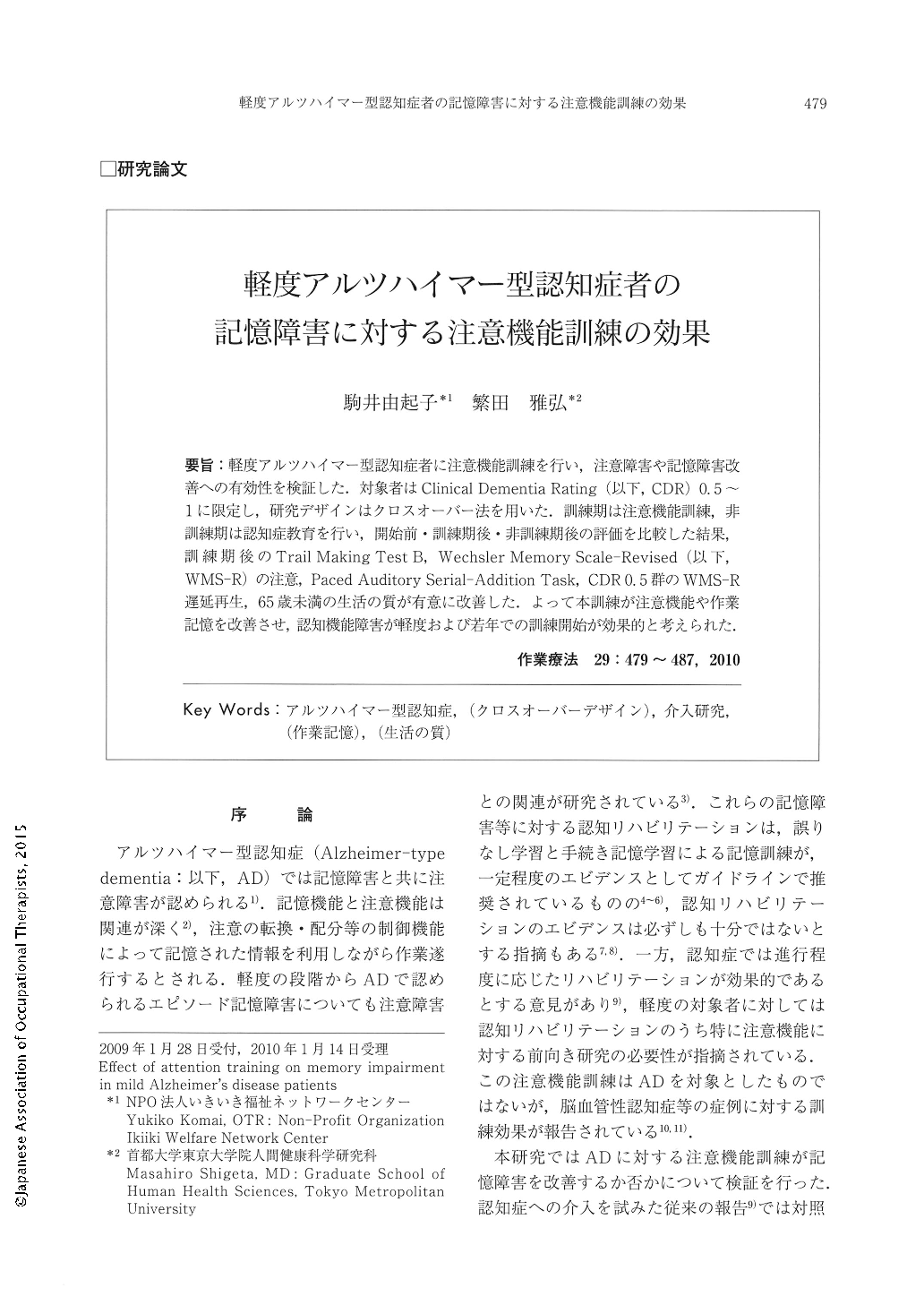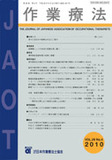Japanese
English
- 販売していません
- Abstract 文献概要
- 1ページ目 Look Inside
- 参考文献 Reference
- サイト内被引用 Cited by
要旨:軽度アルツハイマー型認知症者に注意機能訓練を行い,注意障害や記憶障害改善への有効性を検証した.対象者はClinical Dementia Rating(以下,CDR)0.5〜1に限定し,研究デザインはクロスオーバー法を用いた.訓練期は注意機能訓練,非訓練期は認知症教育を行い,開始前・訓練期後・非訓練期後の評価を比較した結果,訓練期後のTrail Making Test B,Wechsler Memory Scale-Revised(以下,WMS-R)の注意,Paced Auditory Serial-Addition Task,CDR0.5群のWMS-R遅延再生,65歳未満の生活の質が有意に改善した.よって本訓練が注意機能や作業記憶を改善させ,認知機能障害が軽度および若年での訓練開始が効果的と考えられた.
This study was to investigate the effects of attention training on the impairment of memory and attention in 12 patients with mild Alzheimer's disease (AD). The cross-over design consisted of a 12-week training period of original attention battery and a 12-week non-training period of short lectures concerning dementia and brain function. Mild dementia was defined as Clinical Dementia Rating = 0.5 or 1, and Mini-Mental State Examination (MMSE) > 19. Before and after the training and non-training period, cognitive status was evaluated by MMSE, frontal lobe function was evaluated by Frontal Assessment Battery, memory and attention by the Wechsler Memory Scale-Revised (WMS-R), and attention was evaluated by Trail Making Test A and B (TMT-A/B) and Paced Auditory Serial-Addition Task (PASAT). Moreover, activity of daily living and quality of life were assessed by the Disability Assessment for Dementia (DAD) and QOL scale for demented elderly (QOL-D). As a result, significant improvements of working memory as well as attention were observed in the WMS-R and TMT-B after the training period. The improvement in PASAT after training was superior to that of the non-training period. A significant improvement in the delayed recall in WMS-R was observed in the subjects with CDR 0. 5. Although there was no significant difference for the total DAD score, some items concerning executive function showed improvement. QOL-D showed the improvement for subjects under 65, especially for the items which were related to emotion and volition. In conclusion, the attention program may improve memory impairment through attention processes, and a greater effect is expected for younger subjects with mild AD. Moreover, some subjects started to take notes in their daily life to help their memory during the training period. The program could also positively influence their daily life.

Copyright © 2010, Japanese Association of Occupational Therapists. All rights reserved.


